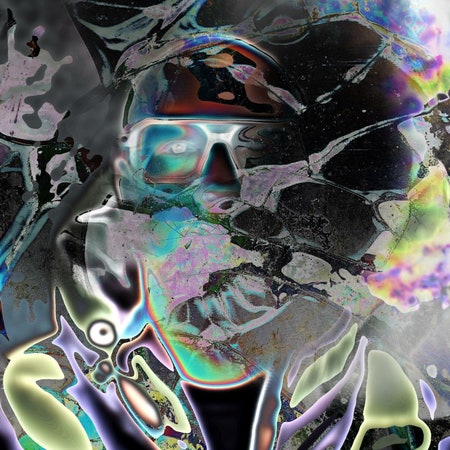For a style ostensibly rooted in club culture, IDM has long felt like the concerned frown on the face of electronic music: a place where gnarled experimentation trumps whimsical adventure and fun is sacrificed on the altar of technique. Enter Mike Paradinas, a producer who was making leftfield dance music when Selected Ambient Works 85-92 was a new release, rather than a dusty classic. Grush, Paradinas’ 17th solo album as µ-Ziq, strives to put the “dance” back into IDM, inspired by the kind of melodic, oddball post-rave music that gave rise to the genre back in the 1990s: Aphex Twin, early Autechre, Black Dog Productions, and even Orbital.
Given that self-appointed mission, Grush could easily have been a nostalgic stroll through the glory days of the ’90s, when Paradinas was feted as one of the hottest names in electronic music. Anyone who loves Aphex Twin’s Hangable Auto Bulb EPs or Paradinas’ own 1997 album Lunatic Harness will find much to love in Grush’s vibrant melodies and intricately funky rhythms. “Fogou” is a glorious combination of driving, neo-classical synth and glitched-out drums; the pounding “Reticulum B” has the distinct air of Sabres of Paradise’s wobbly-lipped, cerebral techno classic “Smokebelch II”; and “Manscape” sounds like Orbital's “Belfast” being dissected by sharply angled breaks.
The difference here—and it can be subtle—is that the drums on Grush frequently sound like they were recorded live, which is unusual for the breaks- and drum-machine-heavy world of IDM. They weren’t, but the intention is there: The tambourine on “Fogou” and “Belvedere” consists of single hits, programmed slightly out of time to simulate real playing, while the shuffling snare and hi-hat pattern on “Hyper Daddy” bears a similarly human sense of flux. “Hyper Daddy,” which Paradinas created specifically to play live, is the song where the producer’s focus on dance is most obvious: Three different drum lines tease, fidget, and needle with the listener’s adrenal response.
Grush’s predictably excellent drums are the mark of a producer who has been cutting up breaks for decades. But perhaps the most purely enjoyable part of the record lies in its array of sumptuous melodies, which evoke the classical prog of Tangerine Dream, Mike Oldfield’s Tubular Bells, or even, gulp, Marillion. At least two of Grush’s 14 tracks, “Hyper Daddy” and “Hastings,” have artful key changes that lend a very prog-ish musicality to proceedings, and immaculately clean keyboard lines send the listener back to the hi-fi-enhanced stereoscopic sound of the ’70s.
